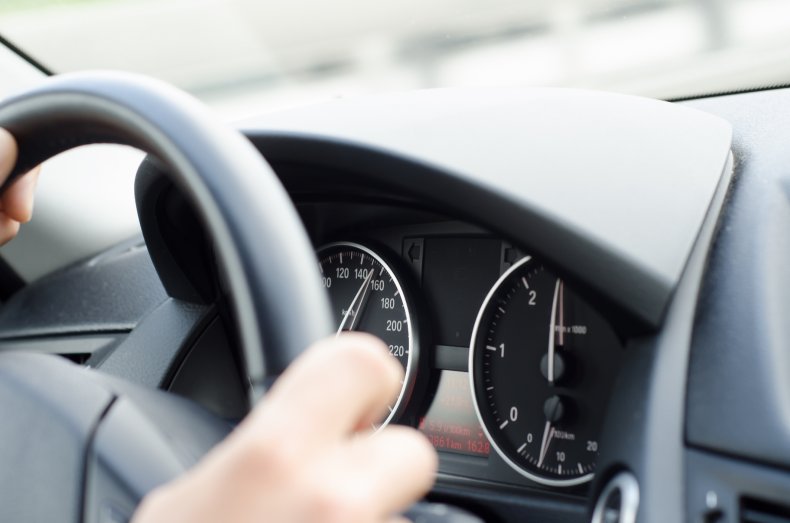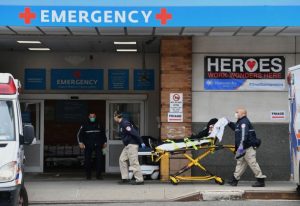Georgia teens won’t have to take a road test before getting a driver’s license due to the COVID-19 outbreak—and some parents are worried.
Efforts to maintain social distancing, as outlined in a public health state of emergency recently extended to May 13, mean the Department of Driver Services (DDS) can no longer have employees monitoring applicants from inside the same vehicle.
As a result, road test waivers have temporarily been put in place through en executive order. Teens still have to meet several requirements, including the submission of a statement confirming they have completed at least 40 hours of supervised training.
Those who qualify can print out a temporary license until the real version is sent through the U.S.P.S. According to WSBTV, there is currently a backlog of up to 30,000 teenagers waiting to upgrade from learners permits to provisional drivers licenses.
A statement on the DDS website now advises: “The Governor’s Executive Order, signed on April 23, 2020, waives the requirement for most automobile road tests until the Public State of Emergency is terminated. During this waiver period, teens should login or create a DDS Online Services account to upgrade/renew their licenses.”
Butsome parents have appeared apprehensive about the waivers.
Alicia Wiggins, the mother of a 15-year-old boy receiving lessons from his parents, told WSBTV this week: “I do feel we need to keep social distancing but I also feel nervous about having drivers on the road [who] haven’t actually passed a road test.”
Jen Hancock, a woman whose son is scheduled to get a learners permit next year, told the news outlet that she felt eliminating the test “puts people at greater risk.”
Speaking to Fox 5, one parent said of her daughter: “I think it would be beneficial to have an unbiased set of eyes on [the] driver. I think I might be quick to let her get her license not knowing if she knows all laws.” Others said they accepted the change.
DDS commissioner Spencer Moore told WSBTV the executive order is intended to let a teen driver skip the road test due to the issues caused by social distancing but assured that the majority who reach the 40-hour stage are already capable of driving.
“Many of them are trained in those settings and they are ready to go,” he said. “We see a very high pass rate. We see more than eighty percent on their first round go.”
Georgia Gov. Brian Kemp signed a public health state of emergency on March 14. It was extended on April 8. A shelter-in-place order is scheduled to expire today.
Despite criticism from political opponents, Gov. Kemp has moved to re-open parts of the economy, previously announcing that gyms, bowling alleys, body art studios, barbers, hair designers and nail care businesses were allowed to reopen from last Friday.
The state has not met reopening guidelines from the White House, and Gov. Kemp faced some criticism from president Trump over his handling of the situation.
Trump said: “Do I agree with him? No. But I respect him, and I will let him make his decision. Would I do that? No. I’d keep them a little longer. I want to protect people’s lives. But I’m going to let him make his decision. But I told him: I totally disagree.”
As reported, the Georgia death toll linked to COVID-19, a disease caused by novel coronavirus, has now passed 1,000 according to Johns Hopkins University data.
Centers for Disease Control and Prevention Advice on Using Face Coverings to Slow Spread of COVID-19
- CDC recommends wearing a cloth face covering in public where social distancing measures are difficult to maintain.
- A simple cloth face covering can help slow the spread of the virus by those infected and by those who do not exhibit symptoms.
- Cloth face coverings can be fashioned from household items. Guides are offered by the CDC.
- Cloth face coverings should be washed regularly. A washing machine will suffice.
- Practice safe removal of face coverings by not touching eyes, nose, and mouth, and wash hands immediately after removing the covering.
World Health Organization advice for avoiding spread of coronavirus disease (COVID-19)
Hygiene advice
- Clean hands frequently with soap and water, or alcohol-based hand rub.
- Wash hands after coughing or sneezing; when caring for the sick; before, during and after food preparation; before eating; after using the toilet; when hands are visibly dirty; and after handling animals or waste.
- Maintain at least 1 meter (3 feet) distance from anyone who is coughing or sneezing.
- Avoid touching your hands, nose and mouth. Do not spit in public.
- Cover your mouth and nose with a tissue or bent elbow when coughing or sneezing. Discard the tissue immediately and clean your hands.
Medical advice
- Avoid close contact with others if you have any symptoms.
- Stay at home if you feel unwell, even with mild symptoms such as headache and runny nose, to avoid potential spread of the disease to medical facilities and other people.
- If you develop serious symptoms (fever, cough, difficulty breathing) seek medical care early and contact local health authorities in advance.
- Note any recent contact with others and travel details to provide to authorities who can trace and prevent spread of the disease.
- Stay up to date on COVID-19 developments issued by health authorities and follow their guidance.
Mask and glove usage
- Healthy individuals only need to wear a mask if taking care of a sick person.
- Wear a mask if you are coughing or sneezing.
- Masks are effective when used in combination with frequent hand cleaning.
- Do not touch the mask while wearing it. Clean hands if you touch the mask.
- Learn how to properly put on, remove and dispose of masks. Clean hands after disposing of the mask.
- Do not reuse single-use masks.
- Regularly washing bare hands is more effective against catching COVID-19 than wearing rubber gloves.
- The COVID-19 virus can still be picked up on rubber gloves and transmitted by touching your face.



















